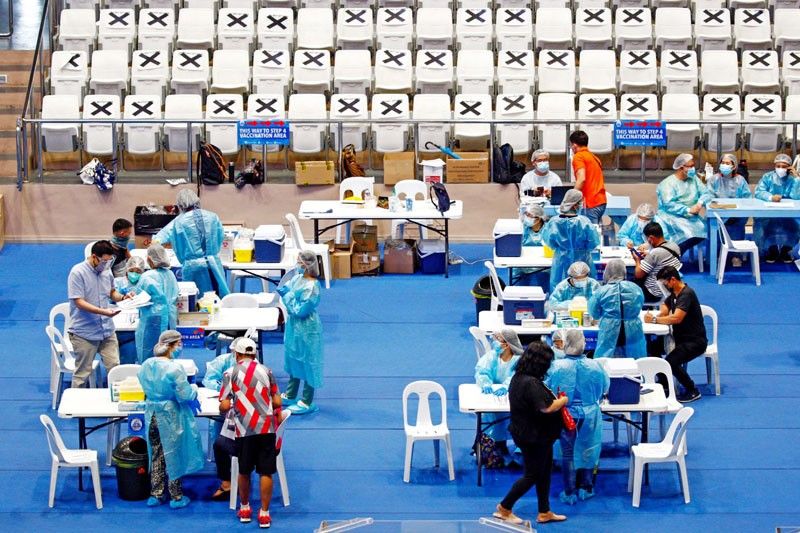‘Only 35 million Pinoys need vaccination for herd immunity’

MANILA, Philippines — The country may only need to vaccinate 35 million Filipinos and not 70 million as generally held by experts to achieve herd immunity from COVID-19, the OCTA Research Group said yesterday.
“When you do an examination of the details, for example there are certain regions that are not high-risk… They actually don’t need 70 percent to get herd immunity,” OCTA fellow Guido David said in an interview with “The Chiefs” on One News/TV 5 on Thursday night.
“They just need 15 to 20 percent of their population vaccinated,” he added, referring to low-risk areas.
Herd immunity refers to the protection developed by the population against an infectious disease following the vaccination or infection of a sizable amount of the general public.
Previous estimates said countries have to vaccinate 70 percent of their population to develop herd immunity.
But David said they came up with the smaller target of 33 percent based on different factors such as having regions that have not experienced major COVID-19 outbreaks since the pandemic started.
The focus, he said, should be on Metro Manila where most of the cases have been recorded.
“We will still need to vaccinate a lot of people in the other regions, but not as much. in Calabarzon, we need to vaccinate about 50 percent… The other regions need less than 50 percent vaccination to get herd immunity,” said the OCTA fellow, a mathematics professor at the University of the Philippines.
“But in the NCR (National Capital Region), we do need about 75 percent,” he added.
David said acquiring herd immunity in Metro Manila would be significant, as it would prevent outbreaks that may spread to other regions.
Provided that enough vaccines are rolled out in the coming months, he said the country may be experiencing its last major surge of COVID-19 cases.
While the infection rate has already gone down following the implementation of enhanced community quarantine (ECQ) in Metro Manila, Cavite, Laguna, Rizal and Bulacan, David said they are still projecting that the total number of cases will hit one million by the end of the month.
“Even if we are on a downtrend (in terms of reproduction number), the number of new cases will not immediately go down significantly,” he said in Filipino. “That would mean that hospitals will still be full for a while.”
David cautioned against prematurely reopening the different industries, warning that it may again result in a spike in new cases.
He earlier said that the government may consider downgrading the quarantine status to modified enhanced community quarantine (MECQ) if the reproduction number – which indicates the number of persons that a positive individual can infect – decreases to at least 1.2 by the end of the week.
It was at 1.24 on Thursday, with the projected drop to below 1.2 by Sunday.
For the Department of Health (DOH), achieving herd immunity will take a long time, owing to various factors.
At a press briefing, DOH Undersecretary Maria Rosario Vergeire said herd immunity cannot easily be achieved because the country is dependent on the external supply of vaccines.
“Secondly, it is not easy to estimate herd immunity now because our immunity, when you get vaccinated, it is still unknown when the immunity provided by the vaccination will last,” she added.
Vergeire said aside from this, the “full effects” of the vaccines kick in two to three weeks after getting the second dose.
Also, there is not enough evidence to prove that the available vaccines for COVID-19 can block the transmission of the virus.
“Herd immunity is a long-term goal. What our objective would be right now is to avert, reduce deaths, to reduce hospitalization and to reduce severe cases,” she maintained.
Data from the DOH showed that as of April 6, a total of 922,898 doses of Sinovac and AstraZeneca vaccines have been administered. These formed part of the 2,525,600 doses received by the country since Feb. 28.
Vergeire said all of the AstraZeneca vaccines have been distributed to inoculation sites nationwide.
“We have already distributed everything. We have zero stocks of AstraZeneca,” she added. – Sheila Crisostomo
- Latest
- Trending
























